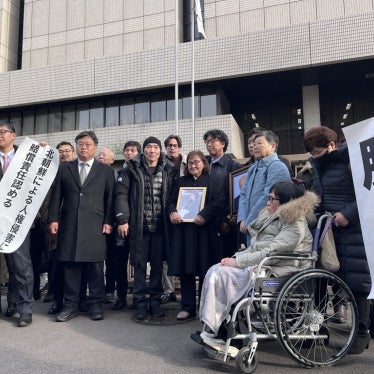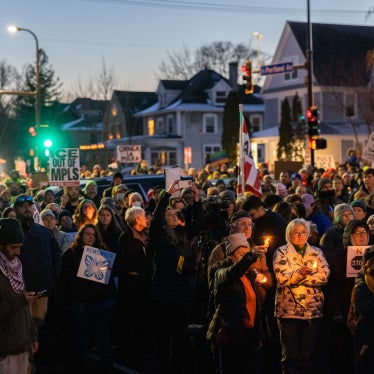Late last year, Philip Alston, the United Nations special rapporteur on extrajudicial killings, released his final report on the Philippines. The results were not encouraging: Mr. Alston found that at least 100 journalists, labor leaders, land reform advocates, and church members had been killed by the government since 2005.
That’s when President Gloria Macapagal Arroyo’s declaration of an “all-out war” against the New People’s Army insurgency was interpreted by the Armed Forces of the Philippines as a license to kill leftists. Those killed were not casualties of firefights on the battlefield, but persons taken into custody and summarily executed.
Although the Arroyo government has repeatedly denied that extrajudicial killings are its policy, it has done little to alter that perception. Instead of publicly reiterating that the peaceful expression of political views is the right of all Filipinos, President Arroyo and members of her government continue to describe nongovernmental organizations as “front groups” for the New People’s Army.
While the New People’s Army has long been responsible for serious abuses, including kidnapping and murder, that does not justify the military’s rampant rights violations. Many of the reported killings implicate members of the armed forces. For instance, Human Rights Watch documented the killing of Pastor Andy Pawikan, a lay preacher who was killed by a group of soldiers in broad daylight while holding his baby daughter. The soldiers, who moments after killing Pastor Pawikan handed the blood-soaked but otherwise unharmed infant back to her mother, made the absurd claim that they had to shoot the preacher because he resisted arrest.
In response to growing international criticism, President Arroyo introduced a flurry of measures throughout 2007 to address the extrajudicial killings: fast-tracking cases through specially-designated courts, establishing a human-rights office within the Armed Forces, setting up a high-level commission of inquiry. But not only have these steps accomplished little—and it is not clear that they are aimed at anything more than window-dressing—they fail to address the core problem: Not a single member of the military has been prosecuted, let alone convicted, for any of these killings.
President Arroyo has suggested that the killings are a result of misbehavior by rogue officials, of local political violence, or, as the military likes to insist, as a result of intra-insurgency purges. Yet Mr. Alston’s U.N. report and Human Rights Watch’s own findings show not only how shallow these explanations are, but also how the military, with the support of the Arroyo administration, has systematically distorted a counterinsurgency agenda and sought to apply it to peaceful government critics.
The similarities to the Marcos era are remarkable, not only in the Philippine military’s expropriation of civilian power, but also in Washington’s response to it. Despite the surge of killings and the government’s refusal to bring members of the military to justice, the Philippine army continues to be one of the largest recipients of U.S. military aid in Asia. It also sends a steady stream of officers to U.S. military-run human-rights training courses and to American service academies.
Pentagon officials claim that they have consistently raised concerns about the extrajudicial killings, but there is no public evidence of this. It is unclear whether the U.S. military is vetting Philippine officers to ensure that none who are implicated in extrajudicial killings are participating in counter-terrorism programs or taking courses at West Point. The Department of Defense has not publicly expressed any concern that those implicated in killings are not even suspended from duty while being investigated, nor has there been a public discussion about the utility of trying to “professionalize” a military whose leaders deliberately distort the core concept of command responsibility and who refuse to end abuses.
Most alarming, the U.S. military seems to accept that the extrajudicial killings are a necessary response to a national security crisis and the “war on terror.” Indeed, earlier this year, Navy Admiral William Fallon told the Senate Armed Services Committee that, “With U.S. advice and training, Armed Forces of the Philippines (AFP) and civilian authorities have improved their ability to coordinate and sustain counterterrorism operations.”
It is possible for the Pentagon to maintain this view in part because successive U.S. administrations—Democratic and Republican—have unstintingly supported post-Marcos Philippine governments, even as each of those has allowed the military to claw its way back into politics. Yet it is the military itself—not Islamist terrorists, not the New People’s Army—that regularly threatens the civilian government with coups and is now the greatest source of political instability.
When will U.S. administrations learn that blind support of abusive militaries harms rather that helps U.S. interests?
Sophie Richardson is Asia advocacy director at Human Rights Watch.







